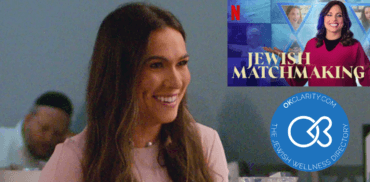I Didn’t Realize I Was Poor-Shaming Until I Became Poor
There’ve been times in my life when I’ve had plenty, not really thinking about how my good fortune have may affected those around me. I never gave other people’s money much consideration. I just assumed that there are some who enjoy luxury while others value simpler lives. It never occurred to me that I might have friends and acquaintances in dire financial straits who were putting on a good face.
But now I am the one putting on that face. My husband became disabled with an invisible handicap. Our income plummeted. We have appealed to charities and have been the grateful recipients of much generosity. But the bread of shame tastes stale and sits like a rock in my stomach every day, despite so much hard work on our parts. We never asked to be poor, to be on food stamps, to owe money everywhere, but this is where we are for the time being.
The 3 weeks leading up to Tisha b’Av is a time of mourning for the destruction of the Beis HaMikdash (holy Temple) and is an acknowledgment of the brokenness of our world. We spend these days trying to be sensitive in how we treat others. Baseless hatred, we are told, was the reason for the calamity. But what if we are unknowingly causing our friends and neighbors pain?
What if we end up, inadvertently, distressing the underprivileged and under-earning in our community? Perhaps you asked a neighbor where you should go for vacation or what she thinks of that fully-loaded car you are considering. You meant well when you asked your friend if he wanted to play golf with you or attend that pricey barbecue fundraiser. All of these are the subtle ways in which we undermine those among us who are secretly struggling. It’s poor-shaming, and it’s everywhere. I have done it too, often without realizing it.
Judaism believes that interpersonal relationships and consideration of others’ feelings are the foundation of life. The great sage Hillel was asked to summarize the “Torah on one foot” and said: “That which you find hateful, don’t do to others.” We also have a positive commandment to love our neighbors as ourselves.
We see this mitzvah exemplified in the way we make kiddush at our Shabbos meals when we cover the challah. On an ordinary day, challah has a higher status than wine, so if both foods are side by side, we bless the challah before we bless the wine. But at our Shabbos meal, we are required to bless the wine first. So in order to not “embarrass” the challah, we cover it as we elevate the wine’s importance.
Bread obviously doesn’t have feelings, but if we are so sensitive to consider how an inanimate object might feel to have its status lowered, how much more so should we be considerate of those around us whose statuses, one day, without warning, were lowered? While we don’t always know who in our community is suffering, we have to assume that everyone struggles from time to time.
I pray that I can soon be in the situation again of needing to be more sensitive to those around me in this position, while I smile and nod at well-meaning friends who absent-mindedly show off their wealth. Our world has become so much more welcoming of people‘s differences, disabilities, lacks, and challenges, but when it comes to our sensitivity over the invisible struggles of others, we can all increase awareness. We can more effectively love our neighbors as ourselves, when we are careful to not overshare our blessings and good fortune. With our added sensitivity, may we merit to rebuild the brokenness in our midst.
If you found this content meaningful and want to help further our mission through our Keter, Makom, and Tikun branches, please consider becoming a Change Maker today.






